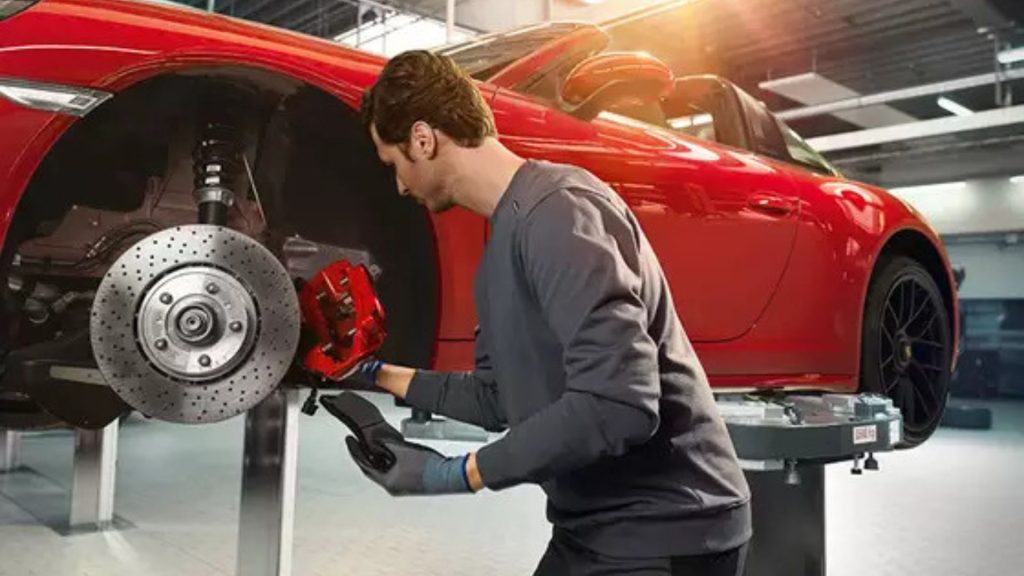Brake pads are a vital part of your Porsche braking system. They provide additional friction to allow your wheel to stop faster. These pads wear down as they’re used, and they will eventually need to be replaced. As your Porsche dealer, we replace the pads at regular intervals as part of your service schedule. Depending on the circumstances, they may need to be replaced sooner. These are some of the signs that you will need to replace your pads.

Screeching Brakes
When you apply the brakes, brake fluid is released into the brake hoses. This fluid is pressurized and exerts hydraulic pressure on the calipers. These calipers are attached to your wheel rotors, and the pressure exerted on them causes the calipers to close on either side of the rotors. Your pads are installed in the calipers, and their friction material covering assists in stopping the rotors from moving.
The friction material on the pads wears off as time passes. When the material has worn down to a level that the pad needs to be replaced, a metal piece becomes visible. This piece of metal will scrape against the rotors when you apply the brakes. The metal scraping against the rotor produces a screeching sound, warning that it’s time to change the pads.
Brake Fade
You may notice that your brakes take longer to stop your car than they used to. This is a sign of brake fade, which occurs when the pads and the rotors don’t generate enough friction with each other. As we’ve seen, the calipers will grab both sides of a wheel rotor, which should cause the rotor to stop turning. Your wheels are attached in front of the rotors, so stopping the rotors will also stop your wheels from turning.
The lack of friction is caused by long periods when the pads are in constant contest with the rotors stopping the wheel. This can occur if you regularly have to drive on sharp winding roads or often drive downhill. To drive safely under these conditions you would automatically have your foot on the brake pedal. This constant contact wears out the friction-causing properties of the pads.
Vibrating Brake Pedal
When you step on the brake pedal, it should be firm and provide resistance. If the pedal feels like it’s vibrating, this means the pads can’t get a firm grip on the rotors. The pads have an adhesive substance that joins the friction material to the pad. The heat generated by using the brakes can cause some of this adhesive to smear across the rotor.
The adhesive will dry on the rotor and make the surface uneven. Over time the rotor surface will become uneven. The caliper can grab part of the even and part of the uneven rotor surface and cause a vibration.
Whether you have a 911 Carrera, a Cayenne, or any other Porsche, pads are essential. Call us at Porsche Monmouth, and we’ll fit new pads for you.
